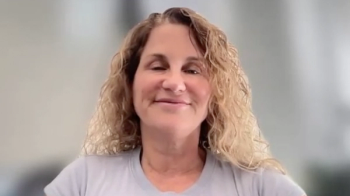
Data from a study shared at the 2025 ASCO Annual Meeting showed that a microRNA-based model was able to predict irAEs in various cancers for those on anti–PD-1 therapy.

Your AI-Trained Oncology Knowledge Connection!


Data from a study shared at the 2025 ASCO Annual Meeting showed that a microRNA-based model was able to predict irAEs in various cancers for those on anti–PD-1 therapy.

Phase 2 data may support nivolumab plus low-dose ipilimumab as a promising option in patients with microsatellite instability–high gastric cancer.

Identifying which patients are at risk of distant failure may assist oncologists in deciding who should receive neoadjuvant radiation, according to Joanne B. Weidhaas, MD, PhD, MBM.

In the phase 3 MANEUVER trial, pimicotinib improved the objective response rate vs placebo in patients with tenosynovial giant cell tumor.

The FDA has set a Prescription Drug User Fee Act date of October 7, 2025, for its decision on approving the lurbinectedin combination in this SCLC population.

Epcoritamab monotherapy led to long-term disease-free remissions in patients with relapsed/refractory large B-cell lymphoma who achieved complete response at 2 years.
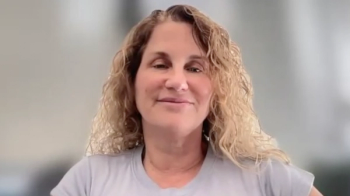
Joanne B. Weidhaas, MD, PhD, MBM, presented 2 abstracts based on microRNA technology at the 2025 ASCO Annual Meeting that demonstrated predictive power.

A phase 3 trial evaluating frontline IFx-2.0 with pembrolizumab in advanced/metastatic Merkel cell carcinoma is planned to start later in June 2025.

Satri-cel led to a median PFS of 3.25 months vs 1.77 months with physician’s choice in patients with pretreated gastric or gastroesophageal cancer.

The median overall survival with cilta-cel exceeds 5 years among patients with relapsed/refractory multiple myeloma in the CARTITUDE-1 trial.

Sacituzumab tirumotecan showed a manageable safety profile compared to docetaxel in patients with EGFR-mutant advanced non–small cell lung cancer.

Specialties including neurosurgery, radiation oncology, and neurorehabilitation all play a notable role in the care of patients with brain tumors.
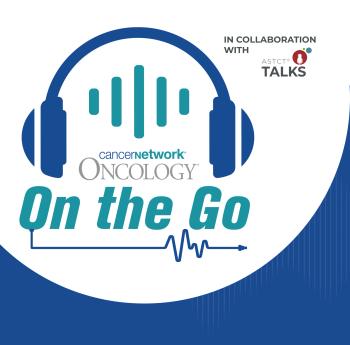
An expert panel highlights key presentations in multiple myeloma, lymphoma, and other hematologic malignancies at the 2025 ASCO Annual Meeting.

Treatment-related toxicities during neuro-oncology therapy appear well managed with dose modifications and treatment cycle holds.

Data from the IGNYTE trial demonstrate the development of a robust systemic antitumor response following treatment with RP1.
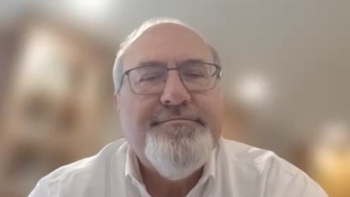
The phase 3 NIVOSTOP trial evaluated an anti–PD-1 immunotherapy, nivolumab, in a patient population similar in the KEYNOTE-689 trial.

CAR T-cell therapies appear to be an evolving modality in the treatment of those with intracranial tumors, said Sylvia Kurz, MD, PhD.

The addition of socazolimab to carboplatin plus etoposide was well tolerated compared with placebo in patients with extensive-stage small cell lung cancer.

Opportunities to further reduce relapses include pembrolizumab-based combination therapy and evaluating the agent’s contribution before and after surgery.

For patients with locally advanced head and neck cancers, the current standard of care for curative therapy has a cure rate of less than 50%.
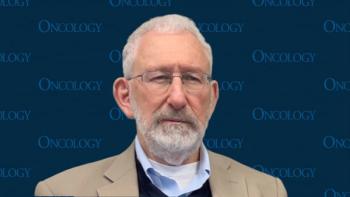
According to Maurie Markman, MD, patient-reported outcomes pertain to more relevant questions surrounding the impact of therapy for patients.

Brandon R. Mancini, MD, MBA, FACRO, discussed results from a phase 1/2a trial that evaluated [212Pb]VMT-α-NET in patients with advanced NETs.

CancerNetwork® spoke with Neha Mehta-Shah, MD, MSCI, about the clinical landscape for patients undergoing treatment for rare lymphomas.

Following the induction phase with chemotherapy alone, ibrilatazar has shown a manageable toxicity profile in patients with advanced squamous NSCLC.

The 1-year progression-free survival rate for patients in the BCMA/GPRC5D naïve RP2D group was 95.0% and across all dose levels it was 74.1%.

A phase 2 trial demonstrated a median overall survival of 43.5 months at 60 Gy compared with 22.5 months at 45 Gy in patients with limited-stage SCLC.

Among 44 patients with EGFR-positive non–small cell lung cancer who discontinued docetaxel, 36.4% crossed over to the sac-TMT arm.

THIO with cemiplimab is active and well-tolerated in patients with advanced non–small cell lung cancer resistant to immune checkpoint inhibitors in second- and third-line settings.
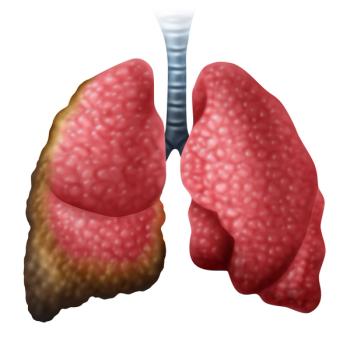
Frontline BNT327/PM8002 plus chemotherapy led to a confirmed ORR of 51.6% and a DCR of 90.3% in patients with unresectable pleural and peritoneal mesothelioma.

Experts weigh in on the practical applications of PSMA PET imaging